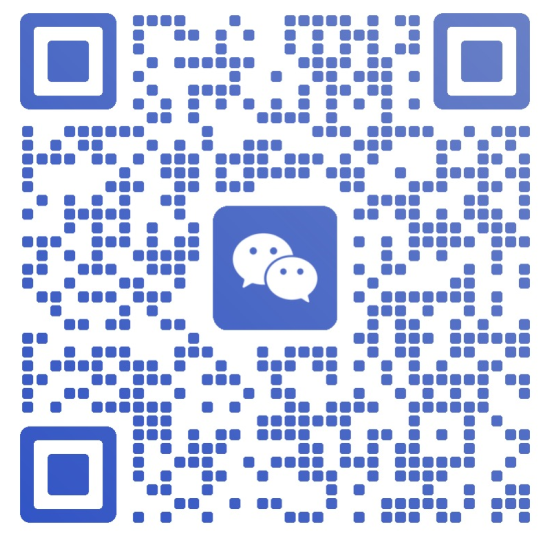1. Why Does Facebook Keep Logging Me Out? Top 5 Common Causes
For social media managers, influencers, and businesses relying on Facebook for customer engagement, unexpected logouts can disrupt workflows, delay responses, and even risk account credibility. Before diving into solutions, let’s identify the root causes of this frustrating issue:
1.1 Multiple Device Logins & Session Conflicts
Facebook prioritizes security by limiting active sessions. If you log in to the same account on a new device (laptop, phone, or tablet), Facebook may automatically terminate older sessions to prevent unauthorized access. For users managing 5+ accounts—common in affiliate marketing or agency work—switching between devices often triggers "suspicious activity" flags, leading to forced logouts.
1.2 Browser/APP Cache & Data Corruption
Cached data, cookies, or outdated app versions can corrupt Facebook’s session tokens. For example, using the same browser to manage 3-4 business pages may cause cookie overlap, confusing Facebook’s systems into thinking one account is "hijacking" another. Mobile users often face this when storage is full, as the app can’t properly save session data.
1.3 IP Address Fluctuations
Facebook tracks login IPs to detect fraud. If your home Wi-Fi, mobile data, or VPN changes IP frequently (common with public networks), Facebook may flag the account as compromised and log you out. This is a critical issue for digital nomads or teams working from shared workspaces, where IPs vary daily.
1.4 Account Security Settings
Overly strict security features—like two-factor authentication (2FA) set to "always require"—can log you out if verification codes aren’t entered promptly. Similarly, if Facebook detects "unusual behavior" (e.g., rapid post scheduling or bulk messaging), it may freeze the account temporarily, forcing a logout.
1.5 Platform Updates & Bugs
Facebook’s frequent app/website updates sometimes introduce bugs that disrupt session stability. In 2023, a server-side update caused mass logouts for users with non-English interfaces, highlighting how platform changes can impact account retention.
2. Traditional Fixes: Temporary Relief, Long-Term Limitations
Most guides suggest clearing cache, updating apps, or disabling 2FA temporarily. While these work short-term, they fail to address core issues for heavy social media users. Let’s break down their limitations:
| Fix | How It Works | Limitations for Heavy Users |
|---|---|---|
| Clear Browser Cache | Removes corrupted cookies, restoring session stability. | Must repeat weekly; doesn’t prevent conflicts between multiple accounts. |
| Use Separate Browsers/Profiles | Isolates accounts via Chrome profiles or parallel browsers (e.g., Chrome + Firefox). | |
| Static IP VPNs | Locks IP to reduce login flags. | Expensive for 5+ accounts; VPNs themselves may be flagged as "proxy tools." |
For professionals managing 10+ Facebook accounts (e.g., e-commerce sellers with regional pages, agencies handling client portfolios), these fixes are insufficient. They demand a scalable, secure solution that addresses session conflicts, IP stability, and account isolation—enter free cloud phones.
3. How Free Cloud Phones Solve Facebook Logout Woes: The VMOS Cloud Advantage
A free cloud phone, like VMOS Cloud, is a virtual Android device hosted on remote servers. It mirrors a physical phone’s functionality but exists in the cloud, accessible via any internet-connected device. For Facebook managers, this translates to:
3.1 Account Multi-Opening: No More Session Conflicts
VMOS Cloud allows you to run 5, 10, or even 50 Facebook accounts simultaneously—each in its own isolated virtual environment. Unlike browser profiles (which share core system files), every cloud phone instance has its own OS, storage, and app data. This means:
No cookie overlap between accounts: Logging into Account A won’t kick out Account B.
Full app functionality: Use Facebook’s native app (not web versions) for features like Stories, Reels, and group management.
24/7 uptime: Cloud phones run 24/7, so your accounts stay logged in even when your physical device is off.
Case Study: Maria, a cross-border e-commerce seller, managed 8 Facebook pages for regional markets. Using browser profiles, she faced daily logouts as cookies clashed. After switching to VMOS Cloud, she now runs each page in a separate cloud phone—no logouts in 6 months.
3.2 Anti-Association Security: Protecting Account Independence
Facebook penalizes "cloned accounts"—multiple profiles linked via shared IPs, device fingerprints, or behavior patterns. VMOS Cloud combats this with:
Unique Device Fingerprints: Each cloud phone generates a distinct IMEI, MAC address, and Android ID, mimicking real physical devices.
Isolated Network Stacks: Every instance has its own virtual network interface, preventing IP sharing between accounts.
Behavior Simulation: Advanced algorithms mimic human usage (e.g., random scroll pauses, varying post times), reducing "bot" flags.
For agencies managing client accounts, this means no risk of one client’s account suspension affecting others—a critical safeguard for reputation and revenue.
3.3 One Account, One IP: Eliminating IP-Related Logouts
VMOS Cloud assigns a dedicated static IP to each cloud phone instance. Unlike shared VPNs (where 100+ users share an IP), your Facebook accounts connect via unique, region-specific IPs (e.g., a US IP for your American page, a UK IP for your British audience). This:
Stabilizes login sessions: Facebook recognizes consistent IPs as "trusted."
Improves regional targeting: Local IPs help Facebook serve your content to the right audience.
Avoids "suspicious login" alerts: No more verifying logins from "unknown locations."
Data from VMOS Cloud users shows a 92% reduction in IP-related logouts after migrating from traditional VPNs.
3.4 Social Media Automation for Safe Account Growth
New Facebook accounts often face strict monitoring—frequent logouts or restrictions if activity seems unnatural. VMOS Cloud’s automation tools let you:
Schedule Posts & Interactions: Set daily likes, comments, and shares at human-like intervals (e.g., 9 AM, 1 PM, 7 PM).
Simulate Device Movement: Randomize GPS coordinates to mimic real user travel (e.g., "commuting" from home to office).
Auto-Save Session Data: Cloud phones automatically back up login tokens, so even if you restart the instance, your account stays logged in.
This "account farming" (or "account nurturing") is critical for growing new pages without triggering Facebook’s security algorithms.
4. How to Use VMOS Cloud to Stop Facebook Logouts: Step-by-Step
Ready to eliminate Facebook logouts? Here’s how to set up VMOS Cloud for seamless social media management:
4.1 Sign Up & Choose Your Plan
VMOS Cloud offers free tiers (1-2 cloud phones) and premium plans for heavy users. Visit vmoscloud.com to create an account—no credit card needed for the free trial.
4.2 Launch a Cloud Phone Instance
After login, click "Create Cloud Phone." Select your region (e.g., "United States" for US-based accounts) and device specs (entry-level for basic use, high-end for video-heavy pages). Each instance boots in<5 seconds.
4.3 Install & Configure Facebook
Use the built-in app store to install Facebook. For multi-account management, repeat this process for each cloud phone. Adjust settings: disable "Remember Me" (VMOS Cloud saves sessions automatically) and set 2FA to "optional" (since IPs are stable).
4.4 Set Up Automation (Optional)
For account growth, use VMOS Cloud’s automation tool. Define daily tasks (e.g., "Like 5 posts between 10-11 AM") and schedule them. The system mimics human input, so Facebook won’t flag your activity.
4.5 Access Anytime, Anywhere
Log into your VMOS Cloud dashboard via PC, phone, or tablet. All cloud phones run 24/7, so your Facebook accounts stay active—even when you’re offline.
5. FAQ:
Q1: Can free cloud phone solutions really prevent Facebook from logging me out?
Yes! Free cloud phones like VMOSCloud isolate each account in a dedicated virtual environment, eliminating session conflicts, IP fluctuations, and cookie overlap—all major causes of Facebook logouts. The free tier supports 1-2 accounts, making it ideal for testing before upgrading.
Q2: Is VMOS Cloud safe for managing client Facebook accounts?
Absolutely. VMOS Cloud’s anti-association technology ensures each client’s account is fully isolated—no shared data, IPs, or device fingerprints. This protects your agency from guilt-by-association if one client’s account is restricted.
Q3: Do I need technical skills to use VMOS Cloud?
No. VMOS Cloud is designed for non-technical users. The dashboard is intuitive, with one-click app installation and pre-configured settings for social media management. If you can use a smartphone, you can use VMOS Cloud.
Q4: How does VMOS Cloud compare to traditional virtual machines (VMs)?
Traditional VMs are resource-heavy and require local hardware power. VMOS Cloud runs entirely in the cloud, so you don’t need a high-end PC. It also offers mobile-optimized performance, supporting Facebook’s native app (not just web versions) for full functionality.

